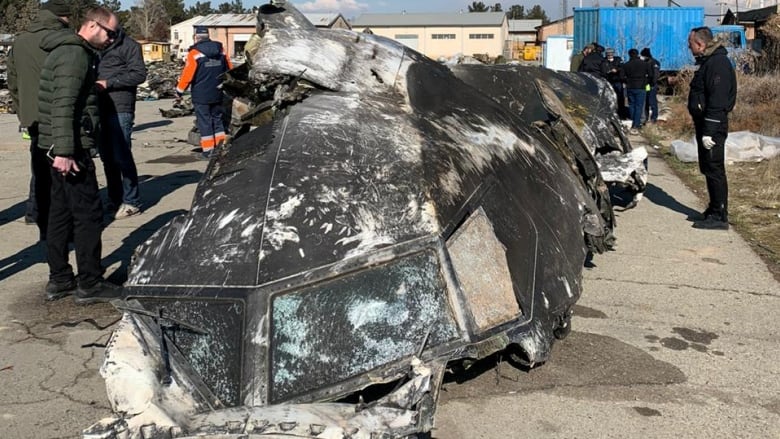Estimated reading time 5 minutes, 3 seconds.
Despite apparently increased tension between Ukraine and Iran over the investigation into the crash four weeks ago of a Ukraine International Airlines near Tehran, Canada’s Minister of Transport Marc Garneau said he has “assurances” from Iran for a full investigation despite concerns about its technical ability to do so.

UIA flight PS752, scheduled service to Kyiv, had been in the air for minutes on Jan. 8 when it was struck by at least one Iranian ground-to-air missile. All 176 aboard were killed, including 57 Canadian citizens and other passengers with ties to Canada. Iran initially denied responsibility.
There had been indications that the investigation, including analysis of the flight-data record and cockpit voice recorder had stalled because Tehran was annoyed by a leaked recording of an in-flight conversation between an air traffic controller and the pilot of a Fokker 100 operated by an Iranian feeder, Aseman Airlines, on a flight to Tehran from the southern city of Shiraz.
The pilot is recorded as saying “a series of lights like, yes, it is missile, is there something?” When ATC sought details, the pilot then said “it was an explosion; we saw a very big light there; I don’t really know what it was.” ATC could not contact the UIA flight.
Ukrainian President Volodymyr Zelensky told a domestic television program Feb. 1 that “the recording indeed shows that the Iranian side knew from the start that our plane was shot down by a missile.”
Zelensky called again for the FDR and CVR to be analyzed in Kyiv, which Iran initially agreed to but then backtracked.
“It is very important for us,” he said, even though Ukrainian investigators were travelling to Tehran the next day to participate in the analysis.
Iranian authorities condemned the leaked recording as “unprofessional,” saying it was part of a confidential report. The lead Iranian crash investigator was quoted by the Merh news agency as saying that “this action by the Ukrainians makes us not want to give them any more evidence.”
Garneau told reporters outside the House of Commons on Feb. 4 that the process had “slowed down” but declined to talk about the friction between the two other countries.
“The investigation is going to go forward; I I have assurances of that from Iran,” he said. “It’s just that it’s taking them more time than we would like them to take because it is important to get on with that analysis [because] the world is looking.”
He also said that the new president of the International Civil Aviation Organization, Salvatore Sciacchitano, the former deputy director of Civil Aviation for Italy whose three-year ICAO term began Jan. 1, also is trying to make that point with Iran.
“There are requirements to analyze these boxes as quickly as possible and if Iran can’t do it . . . then it is their obligation to find somebody who can. . . . The French have made it known that they can do it.”
Garneau reiterated that Canada is “willing go help as much as possible” and that Transportation Safety Board chair Kathy Fox has made it clear that Canada’s internationally-acknowledged expertise with data recovery is available.
He said Iran had “started off on a very good footing” by permitting two TSB officials to see the crash site and recovered debris. “We need them to continue on that footing especially with respect to the analysis of the black boxes. We’re going to continue pushing it. I’m confident that it’s going to happen.”
Asked whether ICAO could bring any pressure to bear, Garneau said that when he and Foreign Affairs Minister François-Philippe Champagne met with Sciacchitano several days earlier, it was acknowledged that while Iran has jurisdiction under ICAO Annex 13, it also can call for external expertise.
He said that when he spoke Feb. 3 with his Iranian counterpart, Mohammad Eslami, he not only “encouraged him to move ahead expeditiously” but also that “we did not believe they have the necessary expertise and equipment in order to do the analysis and the decoding of the boxes which may be damaged.”
Garneau said he proposed that the recorders be sent to France and that Canada was still willing to help. “They said, ‘please send us the letter with the names’ and we are going to do it. My question is how fast is it going to happen.”








